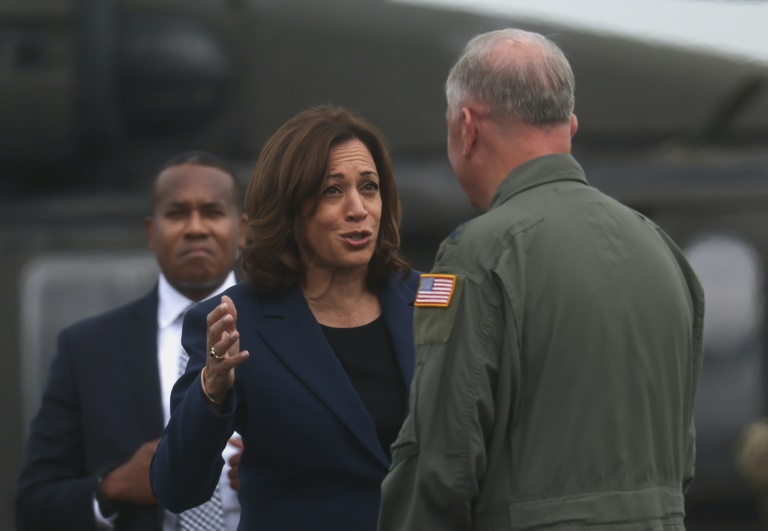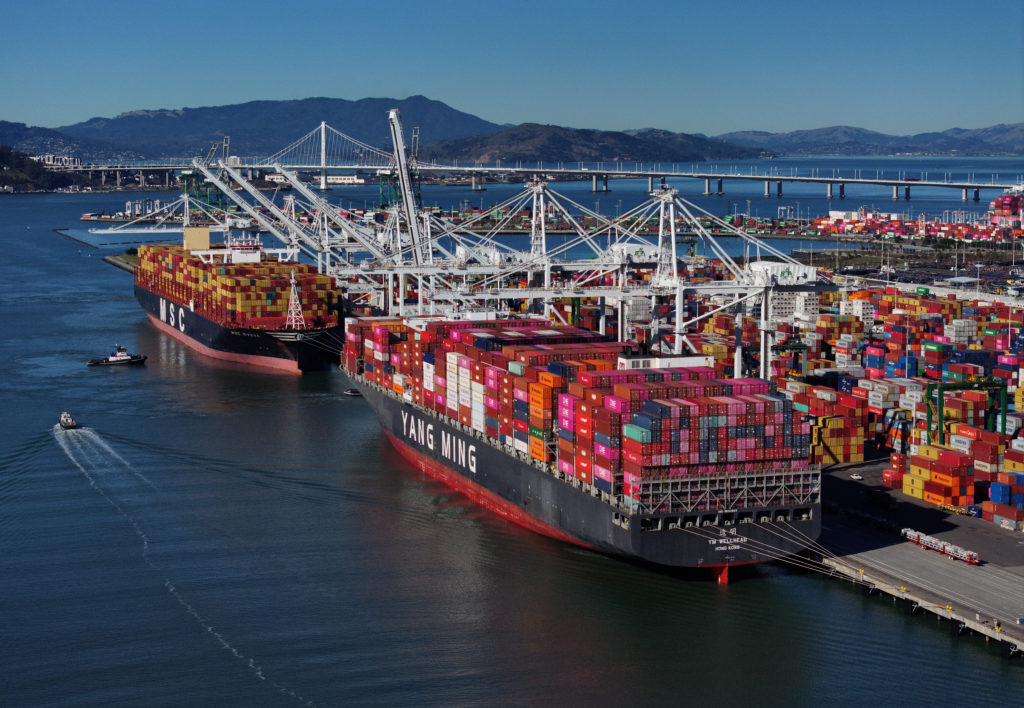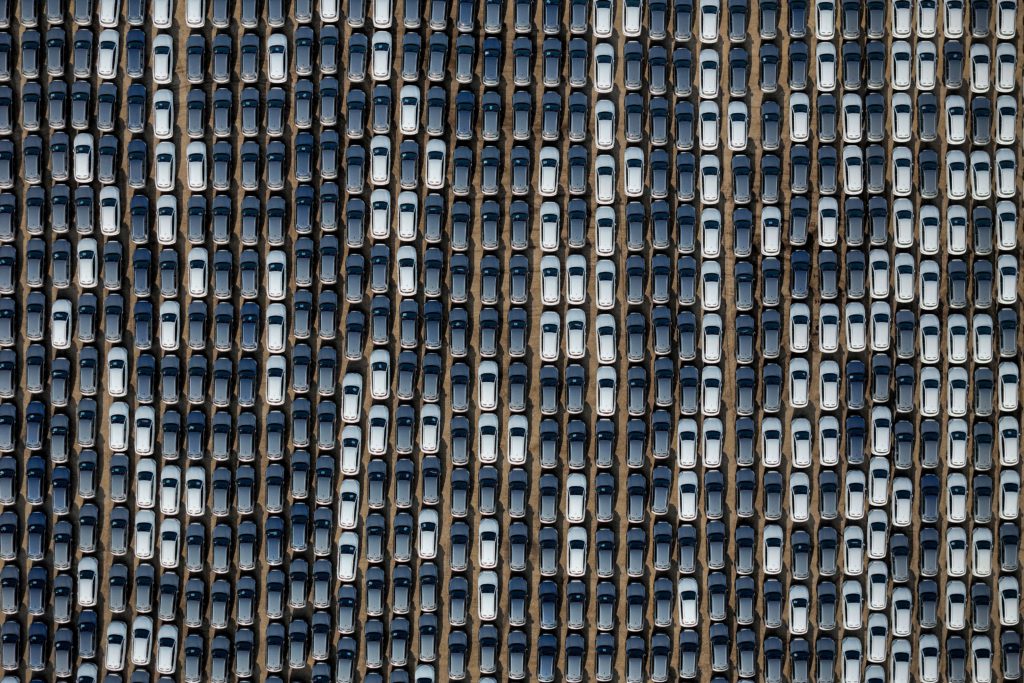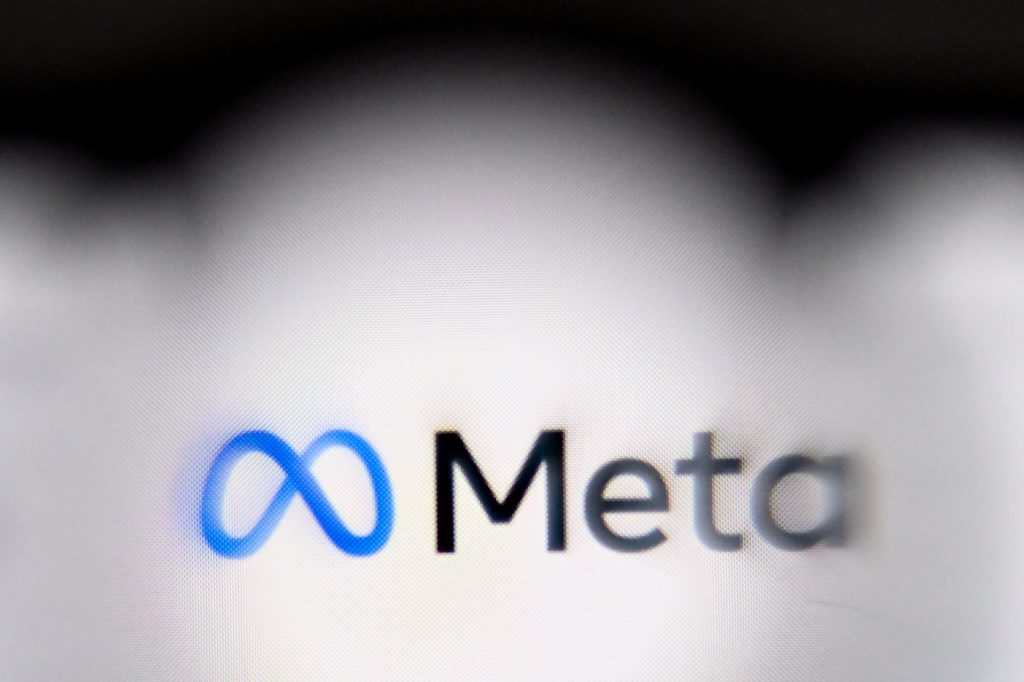US Vice President Kamala Harris said she was visiting South Korea "to reinforce the strength of our alliance and strengthen our work together"
US Vice President Kamala Harris toured South Korea’s heavily fortified border with the nuclear-armed North on Thursday, part of a trip aimed at strengthening the security alliance with Seoul.
But hours after Harris’s plane left Osan Airbase, North Korea fired an “unidentified ballistic missile,” Seoul’s military said.
Thursday night’s launch is Pyongyang’s third in less than a week, continuing a record-breaking blitz of weapons tests this year.
Earlier, speaking at the Demilitarized Zone (DMZ), Harris had emphasised that the US commitment to South Korea’s defence was “ironclad”, saying the allies were “aligned” in their response to the growing threat posed by the North’s weapons programmes.
Seoul and Washington want “a complete denuclearisation of the Korean peninsula” — but in the interim they are “ready to address any contingency”, she said.
South Korean and US officials have warned for months that Kim Jong Un is preparing to conduct another nuclear test, with Seoul’s spy agency saying it could come as soon as next month.
Harris decried North Korea’s “brutal dictatorship, rampant human rights violations and an unlawful weapons program that threatens peace and stability”.
At an observation post atop a steep hill overlooking North Korea, Harris peered through bulky binoculars as US and South Korean soldiers pointed out features, including defences, in the area.
“It’s so close,” she said.
Harris also visited the Panmunjom Truce Village — where then-US president Donald Trump met the North’s Kim Jong Un in 2019 — and talked to US soldiers at Camp Bonifas in the Joint Security Area.
On the North Korean side of the border at Panmunjom, guards in hazmat suits could be seen watching as Harris was shown the demarcation line between the two countries — which remain technically at war.
– Yoon talks –
Washington has about 28,500 troops stationed in South Korea to help protect it from the North, and the allies are conducting a large-scale joint naval exercise this week in a show of force.
Harris’ trip to the DMZ likely infuriated Pyongyang, which branded United States House Speaker Nancy Pelosi the “worst destroyer of international peace” when she visited the border in August.
Harris visited Seoul after a trip to Japan, where she attended the state funeral of assassinated former prime minister Shinzo Abe.
Earlier Thursday, Harris met President Yoon Suk-yeol for talks dominated by security issues — although Seoul also raised its concerns over a new law signed by US President Joe Biden that removes subsidies for electric cars built outside America, impacting Korean automakers such as Hyundai and Kia.
Harris, America’s first woman vice president, also met what the White House called “groundbreaking women leaders” of South Korea to discuss gender equality issues, a topic she said she raised with Yoon during their talks.
Yoon, who has pledged to abolish Seoul’s Ministry of Gender Equality, has faced domestic criticism for a lack of women in his cabinet.
– Nuclear test? –
On Wednesday, the South’s spy agency said North Korea’s next nuclear test could happen in the window between China’s upcoming party congress October 16 and the US midterms on November 7.
North Korea, which is under multiple UN sanctions for its weapons programmes, typically seeks to maximise the geopolitical impact of its tests with careful timing.
The isolated regime has tested nuclear weapons six times since 2006, most recently in 2017. Earlier this month it changed its laws, declaring itself an “irreversible” nuclear power.
“North Korea’s growing nuclear missile threat raises concerns in Seoul about the reliability of Washington’s defence commitments,” said Leif-Eric Easley, a professor at Ewha University in Seoul.
But sending the USS Ronald Reagan supercarrier and Harris to South Korea demonstrates both America’s military capabilities and political will, he added.
During President Yoon’s tenure, Seoul and Washington have boosted joint military exercises, which they insist are purely defensive.
But North Korea sees them as rehearsals for an invasion.
Harris also raised the issue of Seoul working more closely with Japan on security issues during her trip.
Seoul announced Thursday it would hold trilateral anti-submarine drills with Japan and the US, the first such exercises since 2017.
South Korean officials said this weekend they had detected signs Pyongyang could be preparing to fire a submarine-launched ballistic missile.










